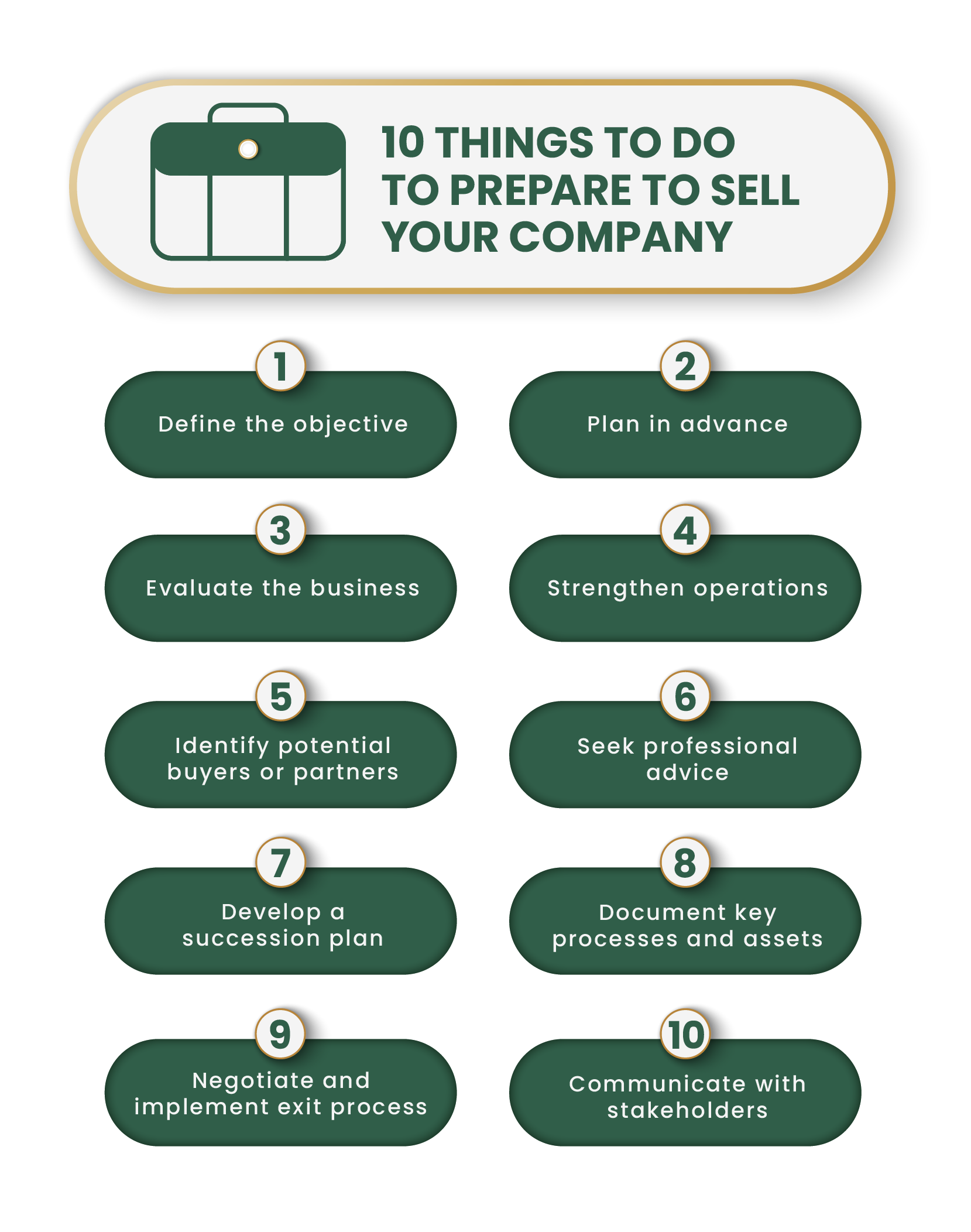Ten Must To-Do’s to Prepare Your Company’s Exit Strategy
Preparing an exit strategy is an essential aspect of long-term business planning. Does your leadership team have the experience and expertise to make it happen? DSB & Associates has worked with 17 Clients over the past 25+ years. All sold for considerably high valuations.
Define the objective: Determine the purpose of the exit strategy: selling the company, merging with another business, or acquiring other companies.
Plan in advance: Exit strategies typically require careful planning and preparation several years before the intended exit to maximize value and minimize risks.
Evaluate the business: Conduct a comprehensive assessment of the company's financial performance, market position, competitive landscape, growth potential, and any potential challenges or risks.
Strengthen operations: Enhance the company's operational efficiency, financial stability, and scalability to increase its appeal to potential buyers or investors. Streamline processes, optimize costs, and develop a strong management team.
Identify potential buyers or partners: Research and identify potential buyers, investors, or partners who might be interested in acquiring or investing in the company.
Seek professional advice: Engage experienced professionals such as lawyers, accountants, investment bankers, or business brokers who specialize in mergers and acquisitions or exit strategies.
Develop a succession plan
Document key processes and assets: Maintain thorough documentation of key processes, intellectual property, contracts, and other assets that contribute to the company's value to help potential buyers or investors understand the business and its potential.
Negotiate and execute the exit: Once a suitable buyer or investor is identified, negotiate the terms of the deal, including price, payment structure, transition period, and any other relevant considerations.
Communicate with stakeholders: It is essential to communicate the exit strategy to key stakeholders, including employees, customers, suppliers, and investors. Maintain transparency throughout the process to minimize uncertainty and ensure a smooth transition.
Remember that exit strategies can be complex and require careful consideration of legal, financial, and operational aspects. Seeking professional advice tailored to your specific circumstances is highly recommended. DSB & Associates has worked with 17 Clients over the past 25+ years. All sold for considerably high valuations.
Ready to get started? Let’s have a discussion.

